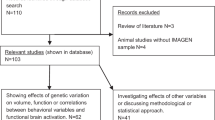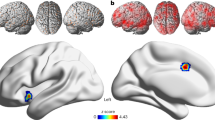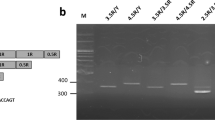Abstract
The 5-HTTLPR polymorphism has been widely regarded as a potential genetic risk factor for affective disorders. Consistent with this, this polymorphism has been associated with altered amygdala responses at rest and in response to aversive stimuli. However, the strength of this association remains uncertain. We sought to synthesize existing data on the association between the 5-HTTLPR polymorphism and amygdala activation and ascertain the strength of evidence for this association. Meta-analytic techniques were applied to data from relevant published studies and unpublished data sets to obtain an estimate of the likely magnitude of effect of any association. The large number of studies allowed us to apply a formal test of publication bias, as well as explore the impact of various study-level characteristics on the magnitude of the observed effect size. Our meta-analysis indicated that there is a statistically significant but small effect of 5-HTTLPR on left and right amygdala activity. However, there was considerable between-study heterogeneity, which could not be fully accounted for by the study design and sample characteristics that we investigated. In addition, there was evidence of excess statistical significance among published studies. These findings indicate that the association between the 5-HTTLPR and amygdala activation is smaller than originally thought, and that the majority of previous studies have been considerably under powered to reliably demonstrate an effect of this size.
This is a preview of subscription content, access via your institution
Access options
Subscribe to this journal
Receive 12 print issues and online access
$259.00 per year
only $21.58 per issue
Buy this article
- Purchase on Springer Link
- Instant access to full article PDF
Prices may be subject to local taxes which are calculated during checkout

Similar content being viewed by others
References
Lesch KP, Bengel D, Heils A, Sabol SZ, Greenberg BD, Petri S et al. Association of anxiety-related traits with a polymorphism in the serotonin transporter gene regulatory region. Science 1996; 274: 1527–1531.
Hariri AR, Mattay VS, Tessitore A, Kolachana B, Fera F, Goldman D et al. Serotonin transporter genetic variation and the response of the human amygdala. Science 2002; 297: 400–403.
Bertolino A, Arciero G, Rubino V, Latorre V, De Candia M, Mazzola V et al. Variation of human amygdala response during threatening stimuli as a function of 5′HTTLPR genotype and personality style. Biol Psychiatry 2005; 57: 1517–1525.
Canli T, Omura K, Haas BW, Fallgatter A, Constable RT, Lesch KP . Beyond affect: a role for genetic variation of the serotonin transporter in neural activation during a cognitive attention task. Proc Natl Acad Sci USA 2005; 102: 12224–12229.
Dannlowski U, Ohrmann P, Bauer J, Kugel H, Baune BT, Hohoff C et al. Serotonergic genes modulate amygdala activity in major depression. Genes Brain Behav 2007; 6: 672–676.
Hariri AR, Drabant EM, Munoz KE, Kolachana BS, Mattay VS, Egan MF et al. A susceptibility gene for affective disorders and the response of the human amygdala. Arch Gen Psychiatry 2005; 62: 146–152.
Heinz A, Braus DF, Smolka MN, Wrase J, Puls I, Hermann D et al. Amygdala-prefrontal coupling depends on a genetic variation of the serotonin transporter. Nat Neurosci 2005; 8: 20–21.
Rao H, Gillihan SJ, Wang J, Korczykowski M, Sankoorikal GM, Kaercher KA et al. Genetic variation in serotonin transporter alters resting brain function in healthy individuals. Biol Psychiatry 2007; 62: 600–606.
Furmark T, Tillfors M, Garpenstrand H, Marteinsdottir I, Langstrom B, Oreland L et al. Serotonin transporter polymorphism related to amygdala excitability and symptom severity in patients with social phobia. Neurosci Lett 2004; 362: 189–192.
Domschke K, Braun M, Ohrmann P, Suslow T, Kugel H, Bauer J et al. Association of the functional -1019C/G 5-HT1A polymorphism with prefrontal cortex and amygdala activation measured with 3 T fMRI in panic disorder. Int J Neuropsychopharmacol 2006; 9: 349–355.
Dannlowski U, Ohrmann P, Bauer J, Deckert J, Hohoff C, Kugel H et al. 5-HTTLPR biases amygdala activity in response to masked facial expressions in major depression. Neuropsychopharmacology 2008; 33: 418–424.
Sheline YI, Barch DM, Donnelly JM, Ollinger JM, Snyder AZ, Mintun MA . Increased amygdala response to masked emotional faces in depressed subjects resolves with antidepressant treatment: an fMRI study. Biol Psychiatry 2001; 50: 651–658.
Shin LM, Orr SP, Carson MA, Rauch SL, Macklin ML, Lasko NB et al. Regional cerebral blood flow in the amygdala and medial prefrontal cortex during traumatic imagery in male and female Vietnam veterans with PTSD. Arch Gen Psychiatry 2004; 61: 168–176.
Stein MB, Goldin PR, Sareen J, Zorrilla LT, Brown GG . Increased amygdala activation to angry and contemptuous faces in generalized social phobia. Arch Gen Psychiatry 2002; 59: 1027–1034.
Clarke H, Flint J, Attwood AS, Munafo MR . Association of the 5- HTTLPR genotype and unipolar depression: a meta-analysis. Psychol Med 2010; 40: 1767–1778.
Munafò MR, Brown SM, Hariri AR . Serotonin transporter (5-HTTLPR) genotype and amygdala activation: a meta-analysis. Biol Psychiatry 2008; 63: 852–857.
Thomason ME, Henry ML, Paul Hamilton J, Joormann J, Pine DS, Ernst M et al. Neural and behavioral responses to threatening emotion faces in children as a function of the short allele of the serotonin transporter gene. Biol Psychol 2010; 85: 38–44.
Lau JY, Goldman D, Buzas B, Fromm SJ, Guyer AE, Hodgkinson C et al. Amygdala function and 5-HTT gene variants in adolescent anxiety and major depressive disorder. Biol Psychiatry 2009; 65: 349–355.
Hu XZ, Lipsky RH, Zhu G, Akhtar LA, Taubman J, Greenberg BD et al. Serotonin transporter promoter gain-of-function genotypes are linked to obsessive-compulsive disorder. Am J Hum Genet 2006; 78: 815–826.
DerSimonian R, Laird N . Meta-analysis in clinical trials. Control Clin Trials 1986; 7: 177–188.
Ioannidis JP, Ntzani EE, Trikalinos TA, Contopoulos-Ioannidis DG . Replication validity of genetic association studies. Nat Genet 2001; 29: 306–309.
Egger M, Davey Smith G, Schneider M, Minder C . Bias in meta-analysis detected by a simple, graphical test. BMJ 1997; 315: 629–634.
Ioannidis JP . Excess significance bias in the literature on brain volume abnormalities. Arch Gen Psychiatry 2011; 68: 773–780.
Ioannidis JP, Trikalinos TA . An exploratory test for an excess of significant findings. Clin Trials 2007; 4: 245–253.
Brown SM, Hariri AR . Neuroimaging studies of serotonin gene polymorphisms: exploring the interplay of genes, brain, and behavior. Cogn Affect Behav Neurosci 2006; 6: 44–52.
Canli T, Congdon E, Todd Constable R, Lesch KP . Additive effects of serotonin transporter and tryptophan hydroxylase-2 gene variation on neural correlates of affective processing. Biol Psychol 2008; 79: 118–125.
Canli T, Qiu M, Omura K, Congdon E, Haas BW, Amin Z et al. Neural correlates of epigenesis. Proc Natl Acad Sci USA 2006; 103: 16033–16038.
Friedel E, Schlagenhauf F, Sterzer P, Park SQ, Bermpohl F, Strohle A et al. 5-HTT genotype effect on prefrontal-amygdala coupling differs between major depression and controls. Psychopharmacology 2009; 205: 261–271.
Furmark T, Appel L, Henningsson S, Ahs F, Faria V, Linnman C et al. A link between serotonin-related gene polymorphisms, amygdala activity, and placebo-induced relief from social anxiety. J Neurosci 2008; 28: 13066–13074.
Furmark T, Henningsson S, Appel L, Ahs F, Linnman C, Pissiota A et al. Genotype over-diagnosis in amygdala responsiveness: affective processing in social anxiety disorder. J Psychiatry Neurosci 2009; 34: 30–40.
Heinz A, Smolka MN, Braus DF, Wrase J, Beck A, Flor H et al. Serotonin transporter genotype (5-HTTLPR): effects of neutral and undefined conditions on amygdala activation. Biol Psychiatry 2007; 61: 1011–1014.
Lee BT, Ham BJ . Serotonergic genes and amygdala activity in response to negative affective facial stimuli in Korean women. Genes Brain Behav 2008; 7: 899–905.
Shah MP, Wang F, Kalmar JH, Chepenik LG, Tie K, Pittman B et al. Role of variation in the serotonin transporter protein gene (SLC6A4) in trait disturbances in the ventral anterior cingulate in bipolar disorder. Neuropsychopharmacology 2009; 34: 1301–1310.
Smolka MN, Buhler M, Schumann G, Klein S, Hu XZ, Moayer M et al. Gene-gene effects on central processing of aversive stimuli. Mol Psychiatry 2007; 12: 307–317.
Surguladze SA, Elkin A, Ecker C, Kalidindi S, Corsico A, Giampietro V et al. Genetic variation in the serotonin transporter modulates neural system-wide response to fearful faces. Genes Brain Behav 2008; 7: 543–551.
Williams LM, Gatt JM, Schofield PR, Olivieri G, Peduto A, Gordon E . Negativity bias’ in risk for depression and anxiety: brain-body fear circuitry correlates, 5-HTT-LPR and early life stress. Neuroimage 2009; 47: 804–814.
Brockmann H, Zobel A, Schuhmacher A, Daamen M, Joe A, Biermann K et al. Influence of 5-HTTLPR polymorphism on resting state perfusion in patients with major depression. J Psychiatr Res 2011; 45: 442–451.
Dannlowski U, Konrad C, Kugel H, Zwitserlood P, Domschke K, Schoning S et al. Emotion specific modulation of automatic amygdala responses by 5-HTTLPR genotype. Neuroimage 2010; 53: 893–898.
Demaree HA, Pu J, Jesberger J, Feeny N, Jeng L, Everhart DE et al. 5HTTLPR predicts left fusiform gyrus activation to positive emotional stimuli. Magn Reson Imaging 2009; 27: 441–448.
Fukudo S, Kanazawa M, Mizuno T, Hamaguchi T, Kano M, Watanabe S et al. Impact of serotonin transporter gene polymorphism on brain activation by colorectal distention. Neuroimage 2009; 47: 946–951.
Gillihan SJ, Rao H, Wang J, Detre JA, Breland J, Sankoorikal GM et al. Serotonin transporter genotype modulates amygdala activity during mood regulation. Soc Cogn Affect Neurosci 2010; 5: 1–10.
Schardt DM, Erk S, Nusser C, Nothen MM, Cichon S, Rietschel M et al. Volition diminishes genetically mediated amygdala hyperreactivity. Neuroimage 2010; 53: 943–951.
Viviani R, Sim EJ, Lo H, Beschoner P, Osterfeld N, Maier C et al. Baseline brain perfusion and the serotonin transporter promoter polymorphism. Biol Psychiatry 2010; 67: 317–322.
von dem Hagen EA, Passamonti L, Nutland S, Sambrook J, Calder AJ . The serotonin transporter gene polymorphism and the effect of baseline on amygdala response to emotional faces. Neuropsychologia 2011; 49: 674–680.
O’Nions EJ, Dolan RJ, Roiser JP . Serotonin transporter genotype modulates subgenual response to fearful faces using an incidental task. J Cogn Neurosci 2011; 23: 3681–3693.
Buchner A, Erdfelder E, Faul F . How to use G*Power. http://www.psycho.uni-duesseldorf.de/aap/projects/gpower/how_to_use_gpower.html, 1997.
Barnett JH, Scoriels L, Munafo MR . Meta-analysis of the cognitive effects of the catechol-O-methyltransferase gene Val158/108Met polymorphism. Biol Psychiatry 2008; 64: 137–144.
Munafò MR, Freimer NB, Ng W, Ophoff R, Veijola J, Miettunen J et al. 5-HTTLPR genotype and anxiety-related personality traits: a meta-analysis and new data. Am J Med Genet B Neuropsychiatr Genet 2009; 150B: 271–281.
Flint J, Munafo MR . The endophenotype concept in psychiatric genetics. Psychol Med 2007; 37: 163–180.
Green AE, Munafo MR, DeYoung CG, Fossella JA, Fan J, Gray JR . Using genetic data in cognitive neuroscience: from growing pains to genuine insights. Nat Rev Neurosci 2008; 9: 710–720.
Sterne JA, Davey Smith G . Sifting the evidence-what's wrong with significance tests? BMJ 2001; 322: 226–231.
Acknowledgements
This work was supported by funding from the Medical Research Council and the Wellcome Trust.
Author information
Authors and Affiliations
Corresponding author
Ethics declarations
Competing interests
PJC has been a paid member of advisory boards of Eli Lilly, Lundbeck, Servier and Wyeth. He has received remuneration for scientific advice given to legal representatives of GlaxoSmithKline. CJH is on the advisory board for p1vital and also owns shares in the company. She is a company director of Oxford Psychologists and has received consultancy payments from p1vital, Servier and GSK. She has also participated in paid speaking engagements for Eli Lily and Lundbeck. SEM has received consultancy payments from p1Vital and has participated in paid speaking engagements for Lilly UK. MRM, RN, ZMM and BRG declare no conflict of interest.
Additional information
Supplementary Information accompanies the paper on the Molecular Psychiatry website
Supplementary information
PowerPoint slides
Rights and permissions
About this article
Cite this article
Murphy, S., Norbury, R., Godlewska, B. et al. The effect of the serotonin transporter polymorphism (5-HTTLPR) on amygdala function: a meta-analysis. Mol Psychiatry 18, 512–520 (2013). https://doi.org/10.1038/mp.2012.19
Received:
Revised:
Accepted:
Published:
Issue Date:
DOI: https://doi.org/10.1038/mp.2012.19
Keywords
This article is cited by
-
Association of serotonin system-related genes with homicidal behavior and criminal aggression in a prison population of Pakistani Origin
Scientific Reports (2021)
-
Effectiveness of Mindfulness-Based Cognitive Therapy for Positive Clinical Outcome in Panic Disorder: a 5-year Longitudinal Study
Mindfulness (2021)
-
5-HTTLPR polymorphism and cross-cultural adaptation: the role of relational openness as a mediator
Culture and Brain (2021)
-
Serotonergic innervation of the amygdala is increased in autism spectrum disorder and decreased in Williams syndrome
Molecular Autism (2020)
-
An integrative analysis of 5HTT-mediated mechanism of hyperactivity to non-threatening voices
Communications Biology (2020)



